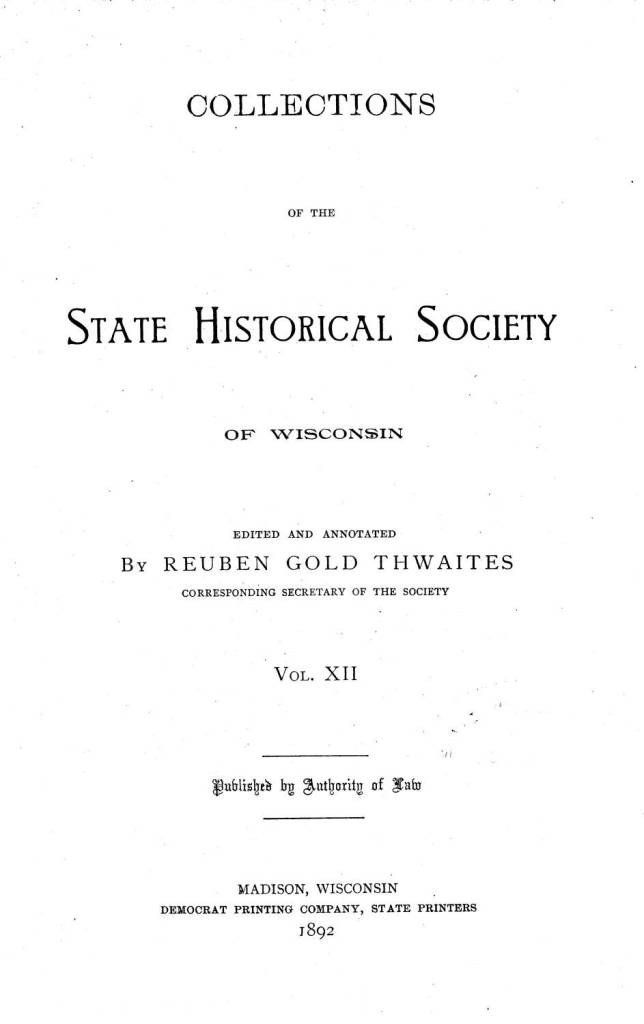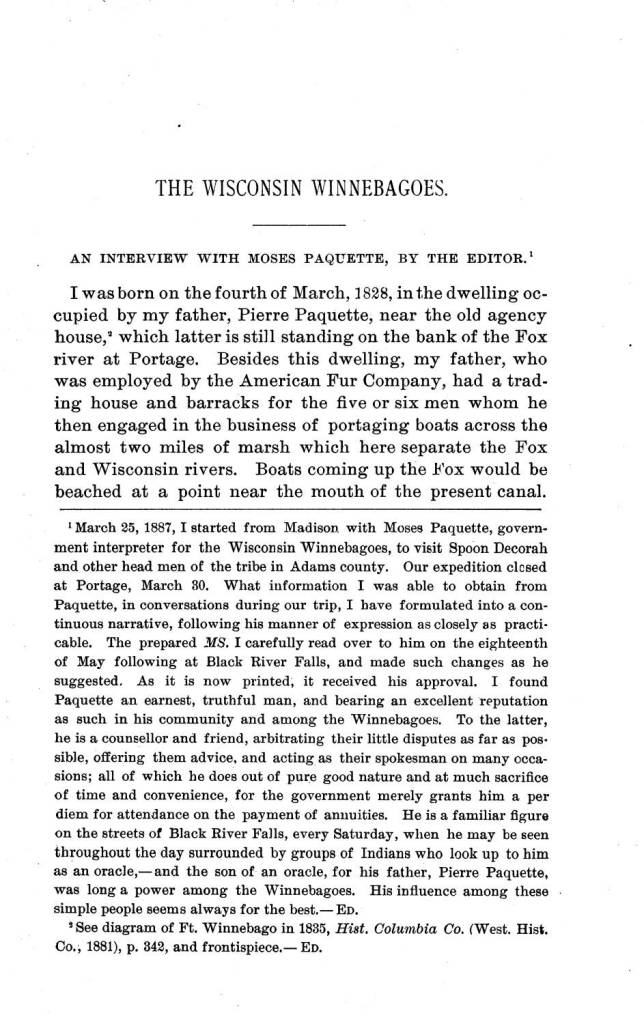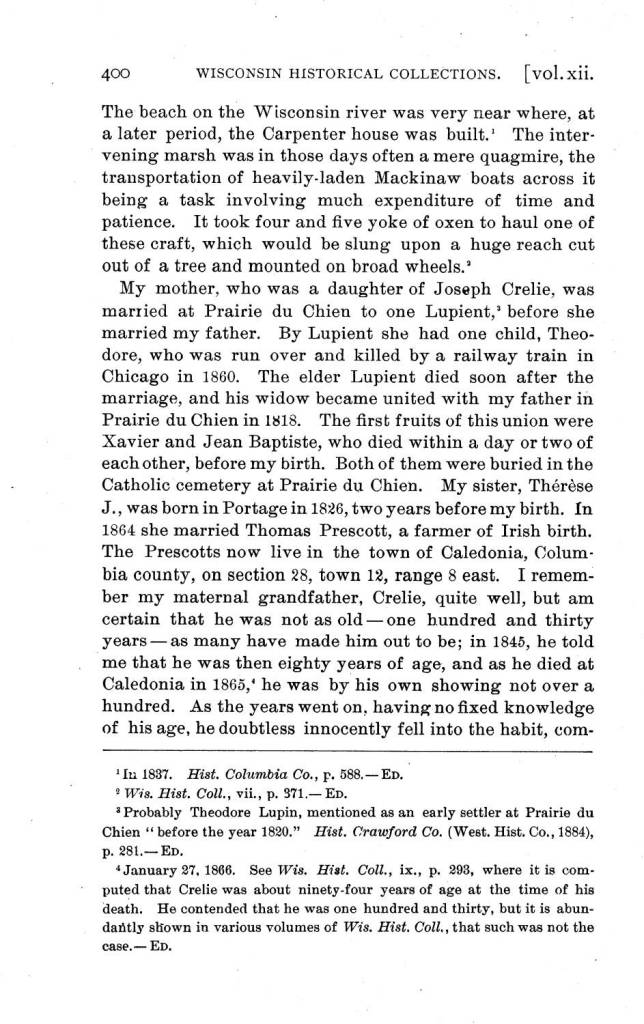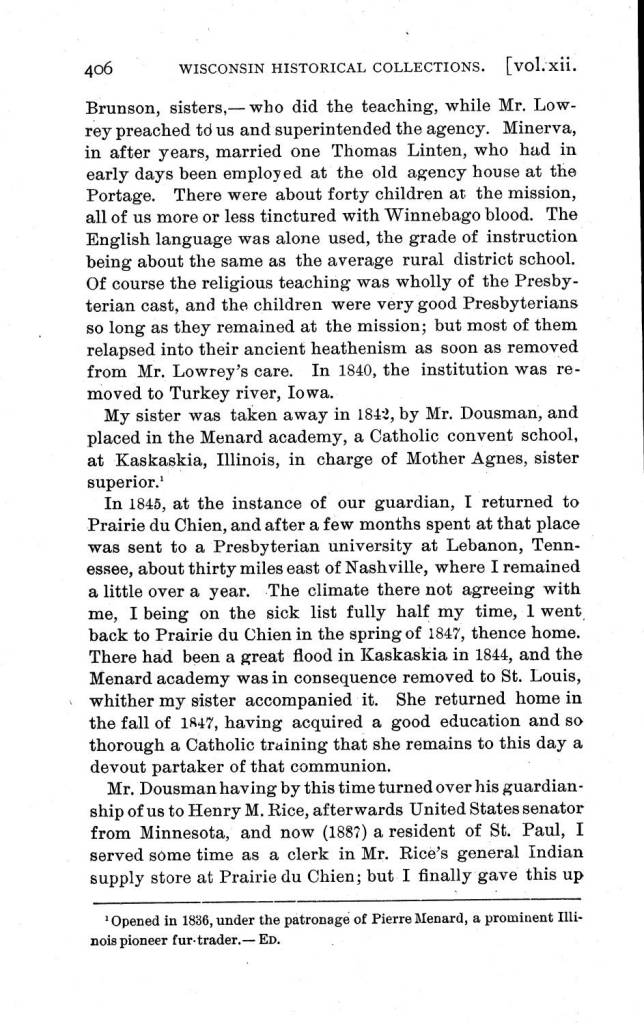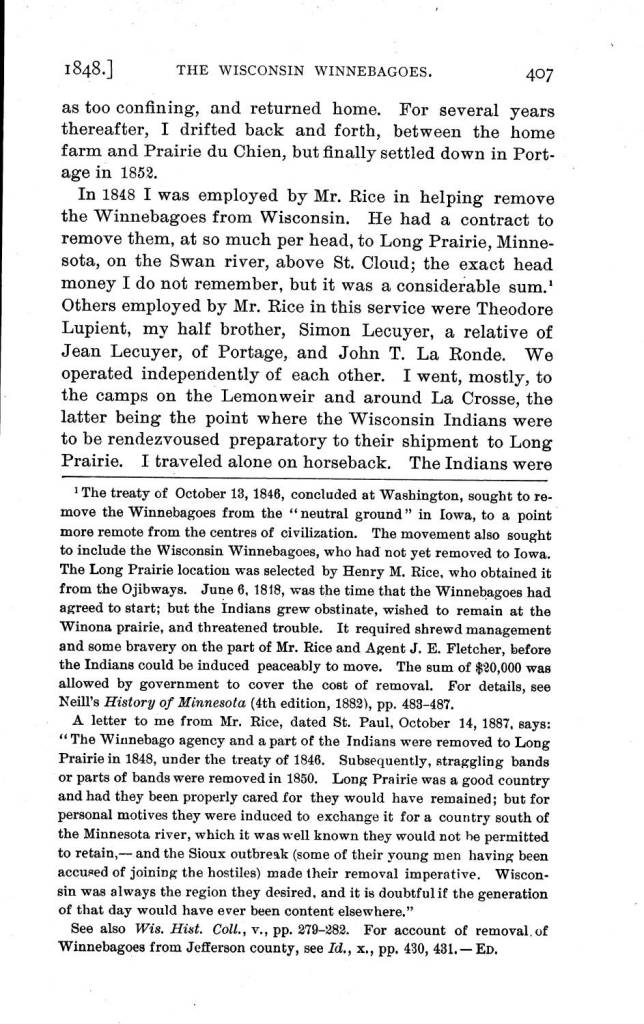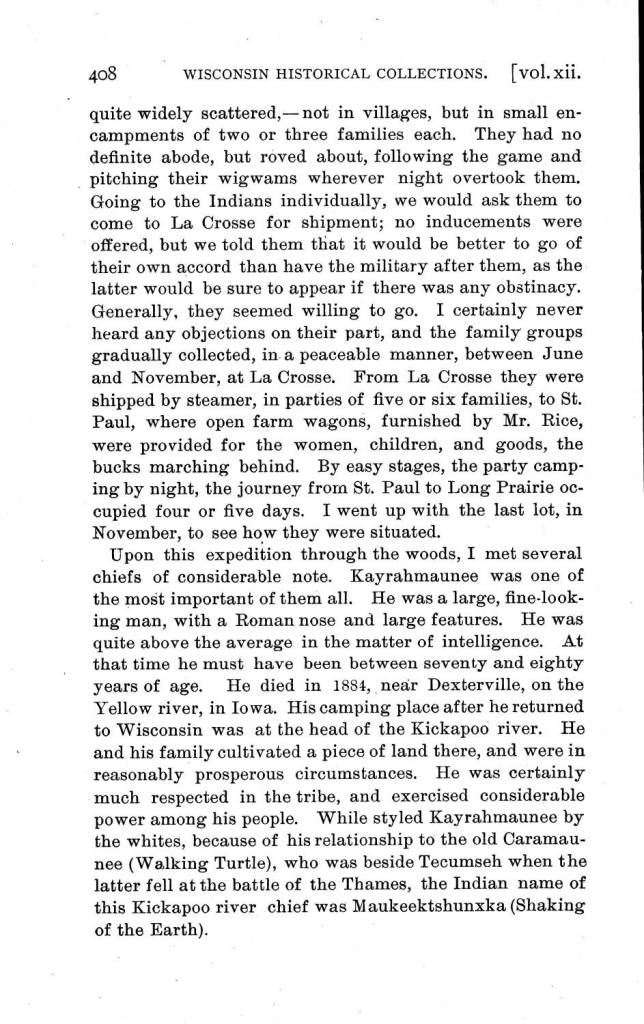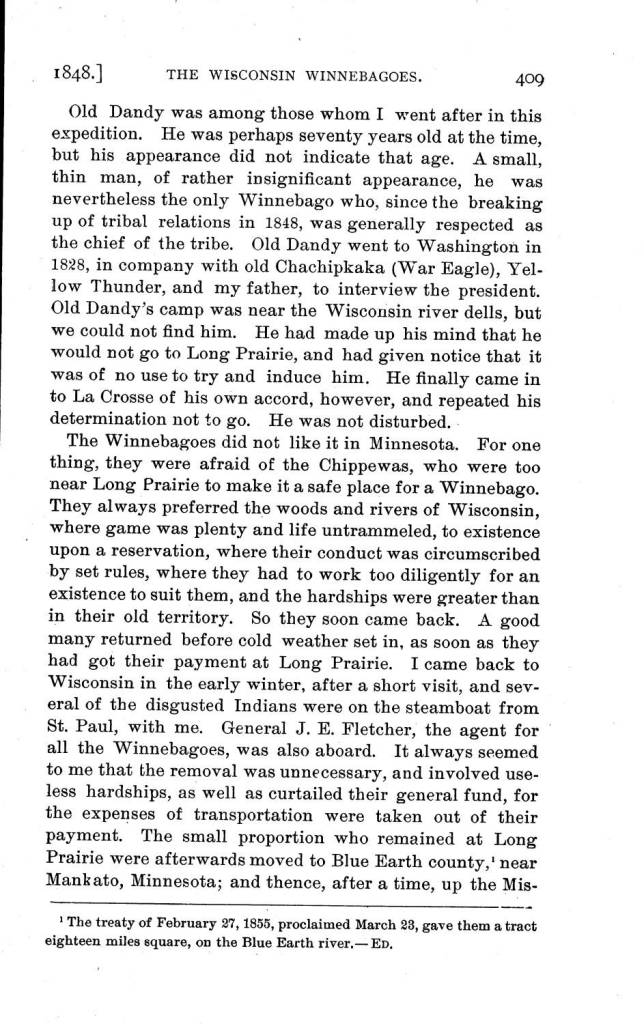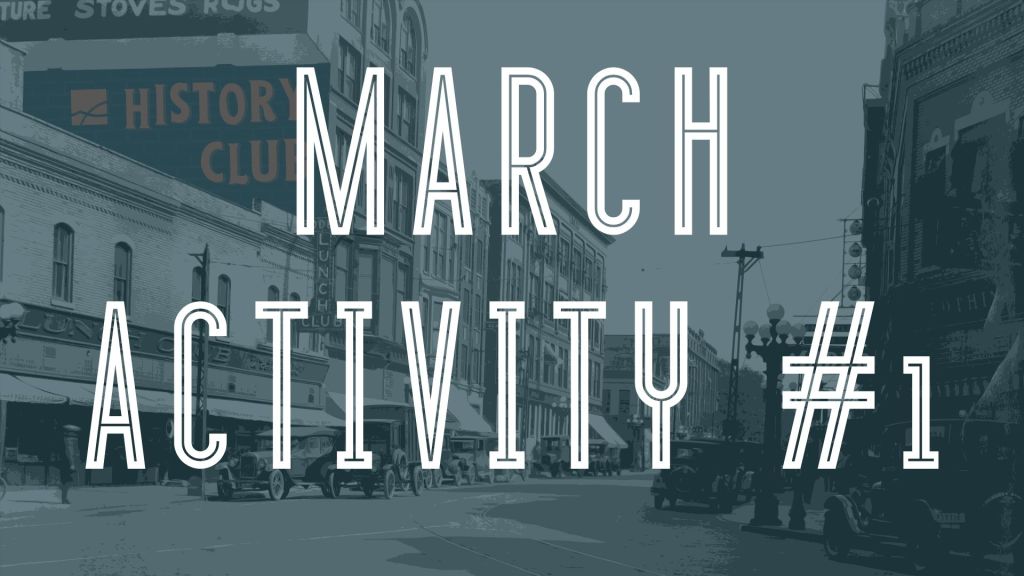
Archives Are Not Neutral? What does that mean?
This four-word phrase sums up multiple, intersecting issues:
- Institutions like archives, museums, historical societies, etc. in the U.S. were established using western practices. This means they are inherently a product of colonialism, as well as an enforcer of colonialism.
- Using these western practices, repositories typically only contain physical documents and artifacts that were saved and preserved through time. Other, just as meaningful primary source evidence—like Indigenous oral tradition, for example—was never considered a “real” record to be collected by record-keepers throughout history.
- This makes it pretty evident that record-keepers—whether they were archivists, librarians, archaelogists, or oral historians—have historically had the same biases that we see in the rest of society, including classism, racism, homophobia, transphobia, sexism, xenophobia, etc. And this bias has shaped the historical record.
- If repositories only contain certain kinds of records, then researchers and historians who use archival repositories typically will only tell the stories of that preserved information. There are many stories we cannot tell—but at least we can try to talk about what those stories may be.
This phrase means that our society suffers because of this systemic way in which our records shape our history. If we have limitations in available primary sources, that means that we have limitations in how we can understand and teach history.
This month, we are going to look at some examples of how this concept shapes the historical record of La Crosse. Below are some primary sources and some context we’ve created that explains what makes them Not Neutral, and how they make the history of our community Not Neutral. Our second activity this March will then look at the UWL Oral History Program collection, and we will take the skills we learn here in Activity #1 and look at how this mindset can be applied to an organization or a collection as a whole.
To do this, here are some questions to be thinking about this month:
- Who created/published these documents, and why?
- What could have been the process for these documents/information to make it into the archives?
- What experiences, stories, and perspectives do we miss out on?
Example 1
A few weeks ago, Jenny attended an event about the Tomah Indian Industrial School, the most local-to-La Crosse boarding school that attempted to commit cultural genocide on the area’s Indigenous peoples. We talked about this school in September 2021’s second activity. At the event, Jenny learned the names of the founders of the boarding school, one of which was Reuben Gold Thwaites.
After the event, Jenny wanted to reread the September activities, to check in if anything should be changed and discovered something very coincidental: one of the sources in Activity 1 was edited and annotated by Reuben Gold Thwaites. How could this be?
She looked Thwaites up and found that he was a librarian and archivist. Thwaites served as a president for the Wisconsin Historical Society and is credited for many accomplishments. Most notably, perhaps, he is celebrated for publishing the journals of Lewis and Clark, to highlight their journey. But none of the secondary sources recognize that he was also a founder of a boarding school.
Collections of the State Historical Society of Wisconsin, Edited and Annotated by Reuben Gold Thwaites. Accessed here: https://content.wisconsinhistory.org/digital/collection/whc/id/7178/rec/12
What does it mean that Reuban Gold Thwaites, co-founder of the Tomah Indian Industrial School, edited and annotated sources that we use today to understand our history? As a librarian and archivist at the state level, how did Thwaites shape our history?
Example 2
One of the ongoing programs at the La Crosse Public Library is called Footsteps of La Crosse. These are walking tours that look at how class, culture, and architecture intertwine on our city streets. Jenny guides some of these tours every May to celebrate Historic Preservation Month. However, these tours typically focus on rich, elite historic figures in La Crosse history—the lumber barons, bank barons, and brewery barons. They focus on the men who owned companies and made their riches off the backs of working-class residents who worked hard, long, dangerous days. In the mid to late 1800s, there were no labor laws to establish 8-hour work days or unions to protect these laborers. These figures in our local history have just as much importance to our cultural heritage as Giddeon Hixon, yet we don’t know their names or consider their homes historic landmarks, do we?
The Footsteps tours also often forget to mention the domestic staff that lived in these large homes, and took care of them so that they are still standing in such good condition today. Domestic staff throughout history can be given credit for these houses to be appreciated as historic landmarks in our community. Yet, they are left out of the narrative.
When Jenny guides these tours, she tries to encourage people that as they look up at these houses and their intricate architectural details, to consider the gardeners who worked on the landscape around the houses, the valets who took care of the horses (and later cars), the maids who lived in small rooms on the top floors and used back entrances with steep stairs, and the person who had the job to climb up and clean the windows, brackets, and spindles.

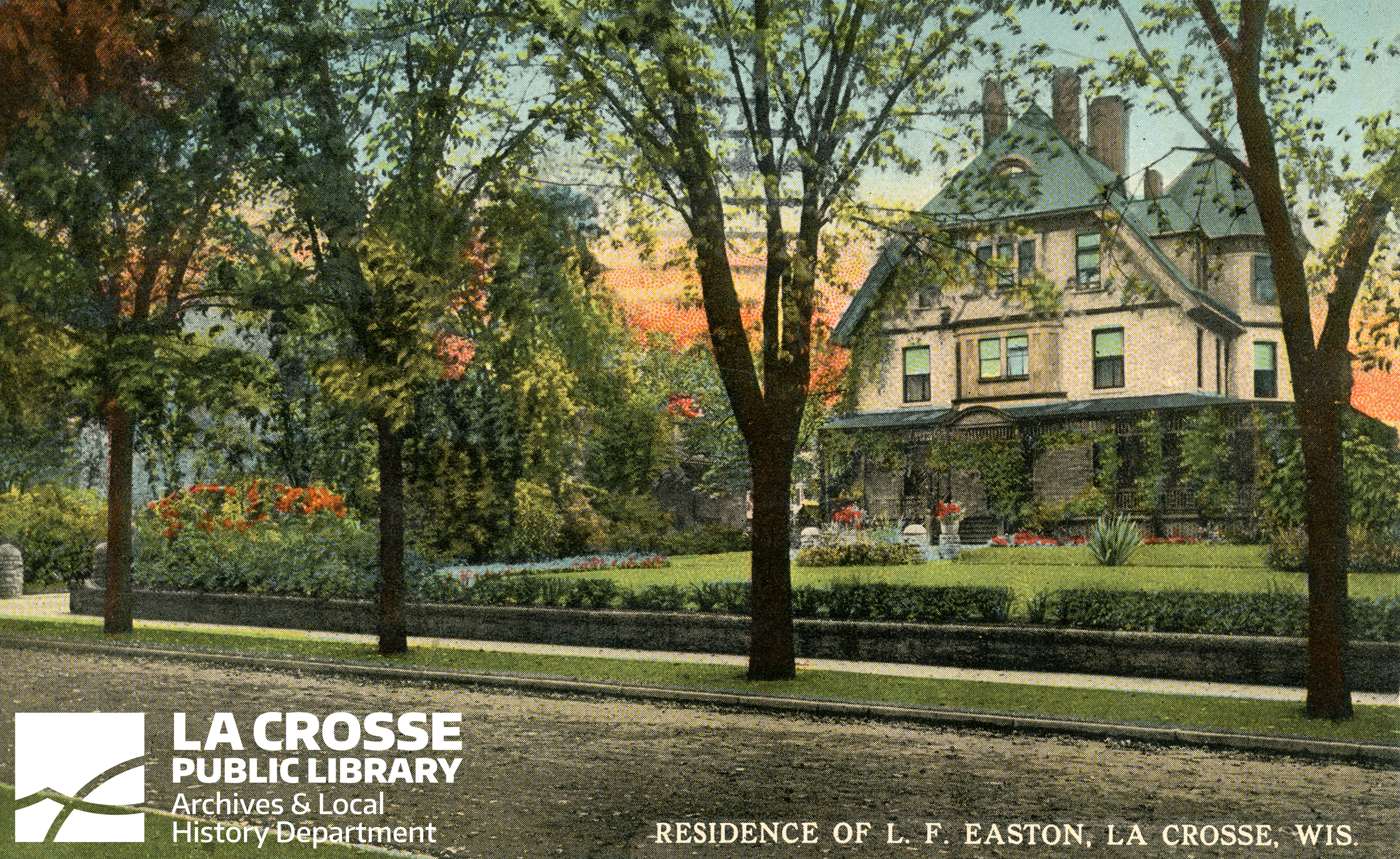
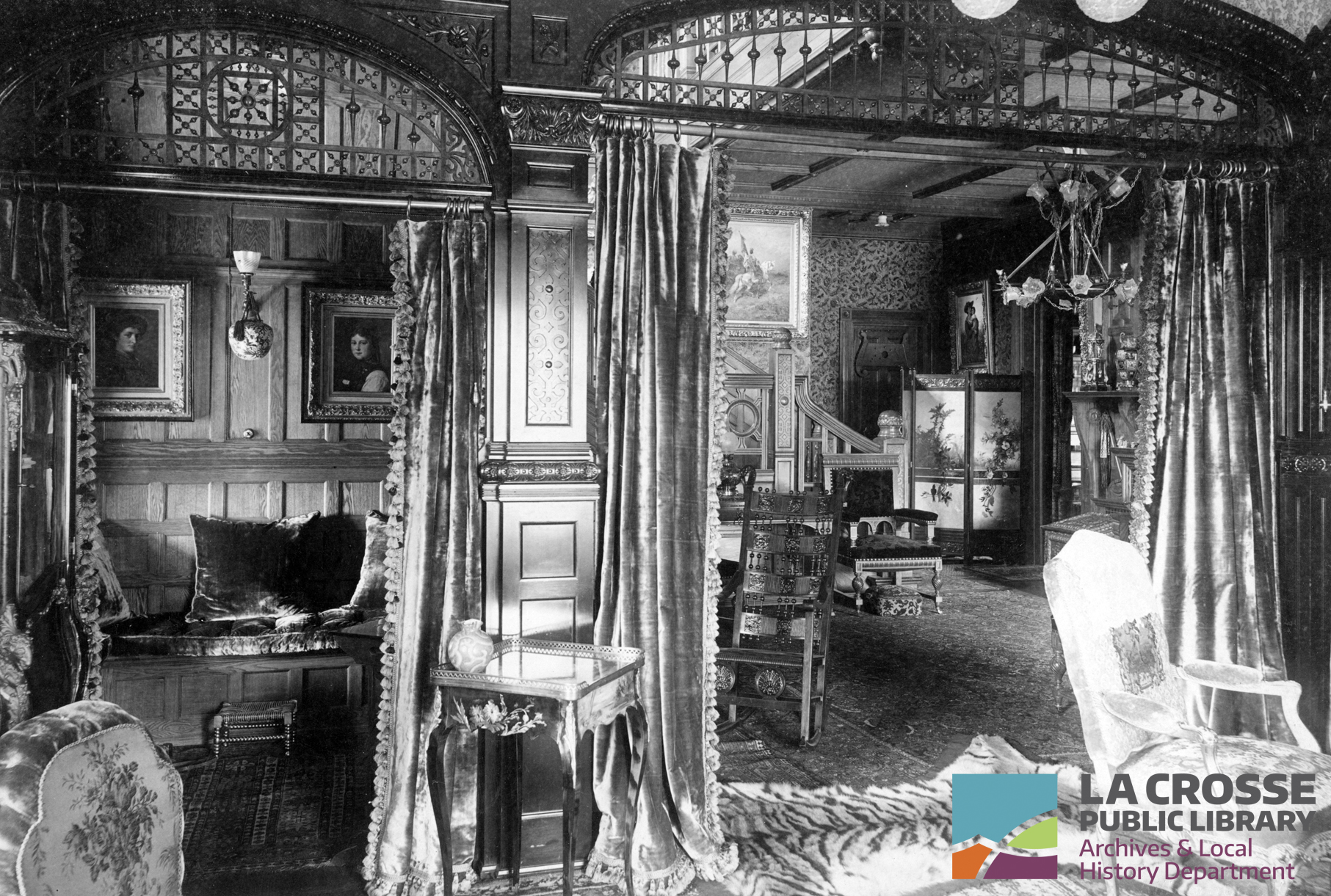
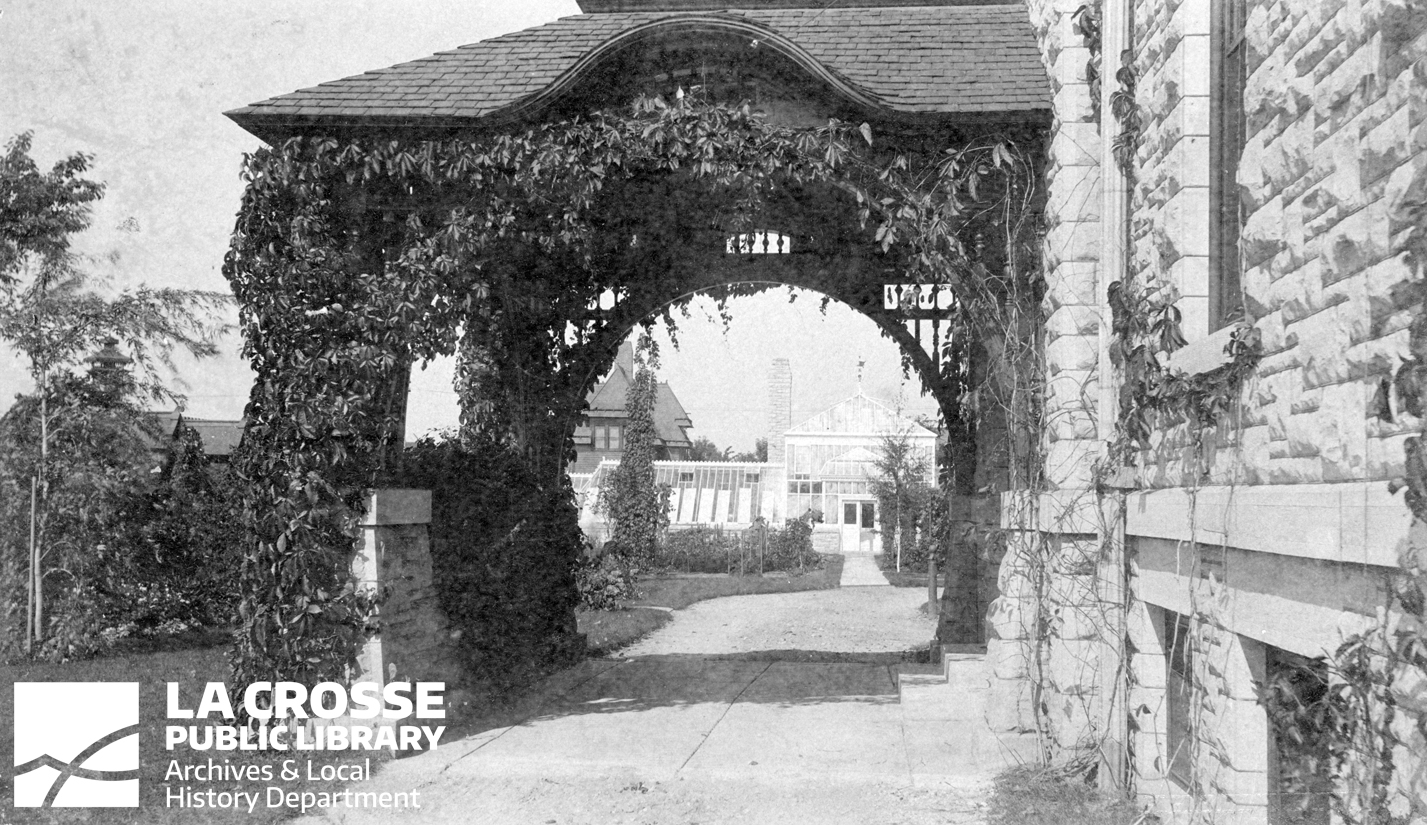
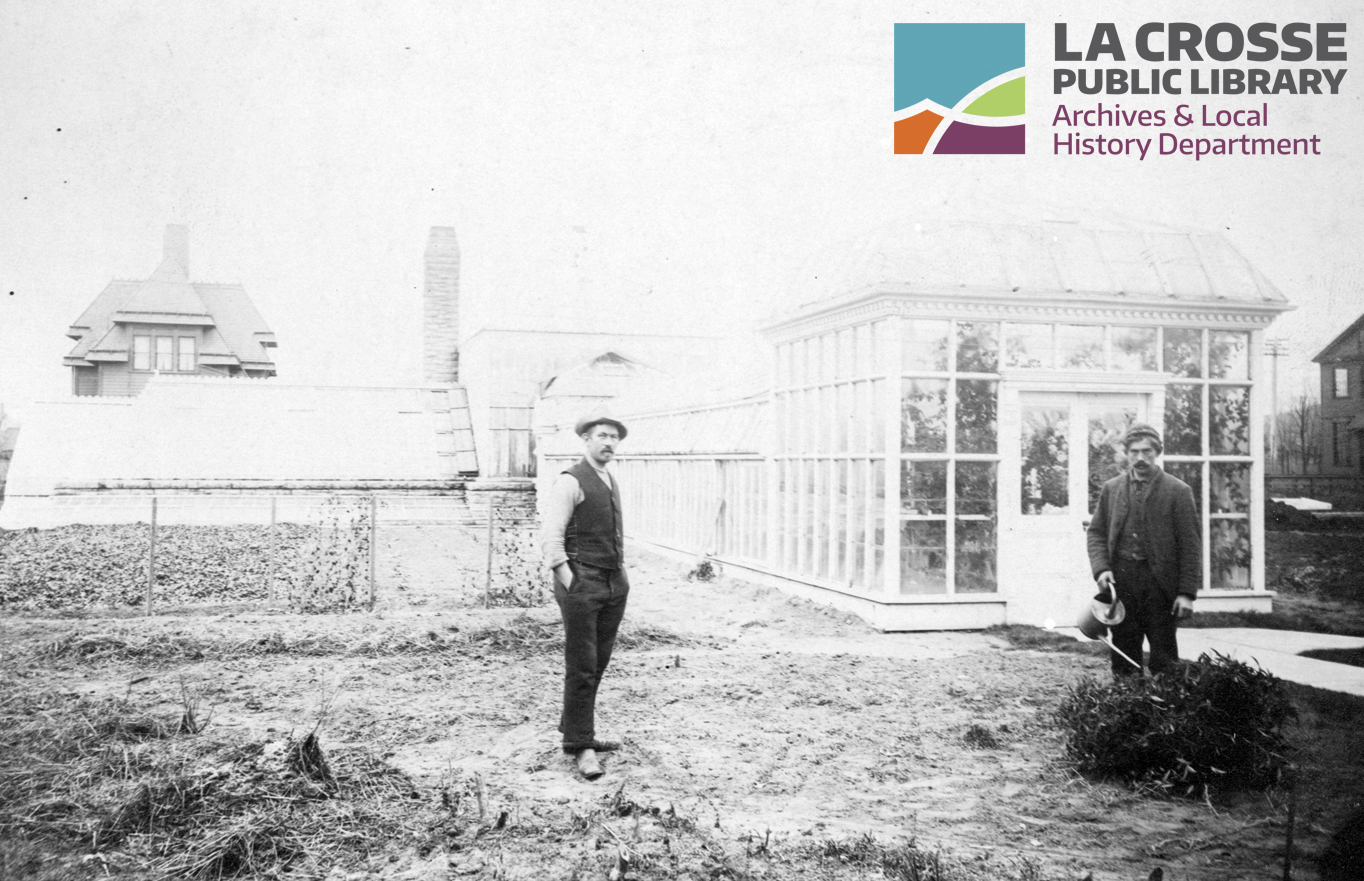
In the Archives, we hold many historic photographs of mansions and the prominent families who lived in them. And sometimes, we’re lucky enough to have photos of the staff of the homes. The photos above are all from the La Crosse Public Library Archives & Local History Department photo collection and depict the Easton estate, which was located on the 1300 block of Cass St.
Our Archives Are Not Neutral because record-keepers of the past typically only wanted materials donated to their institutions from prominent families, so that is the foundation of our collections today. This is not to say that these families weren’t important in our history, it’s just that we need to acknowledge how they amassed their wealth and how those details impacted other community members. The fact that we don’t know those details makes this history Not Neutral.
March’s History Club meeting date/time is TBA, but it will be the week of the 28th-31st. Check here for upcoming details.
